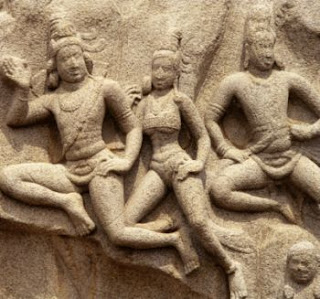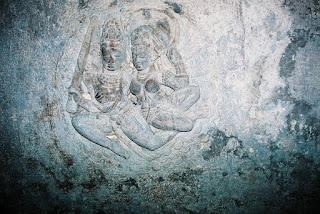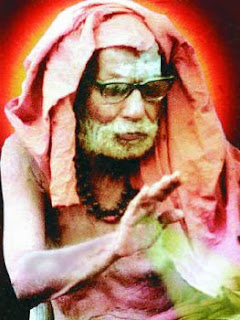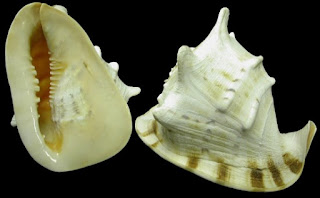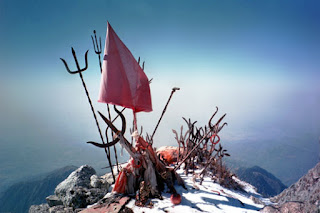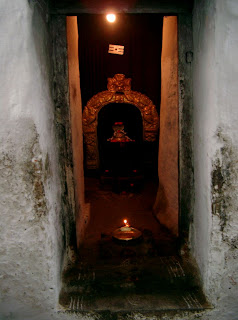 At the moment of death, experienced doctors say, there is rarely a chance that a person is going to be aware or has the consciousness to realize this experience of death that they are going through. Physically, the person displays a lot of changes at the time of death depending on where the soul leaves the body from; i.e. the kabalam, the nabhi or the genitals...
At the moment of death, experienced doctors say, there is rarely a chance that a person is going to be aware or has the consciousness to realize this experience of death that they are going through. Physically, the person displays a lot of changes at the time of death depending on where the soul leaves the body from; i.e. the kabalam, the nabhi or the genitals...
The scriptures say the "most sinful Pretas" continue to experience the insensibility of death like a stone. They are awakened into consciousness after a duration of time (up to 1 year in human terms) based on the amount of sin committed during that life time. They are described to be as inert as a stone, or similar to an immovable tree towards the sensibility of this experience of death.
Kama Loka is the world of desire, the after life which is an illusion that the souls go through before they awaken. My assumption is this is the illusion they go through in the "stone" state. This is a state of consciousness where an illusory world is created to match the desires closest to the recently departed souls. This is an illusion the dead wake out of when they first arrive here. [Muslims believe they have reached paradise, ancient Egyptians filled the tomb with desired objects for the journey of the departed into this illusory world, Christians possibly believe they see Christ in this state] In a very short time these errors of perception are corrected.
Virtuous souls too don't have an inkling of death. While some of us might feel safe that we don't even have consciousness towards the state of dying, I personally wonder what it really is to pass from one state to another. In the case of virtuous souls, death passes them by in the same inertness which is short lived, but at the end of that they are promised an experience of the world of Gods. They are subsequently reborn into the world in richer families, in comfort.
Ordinary virtuous souls face a different experience after they have tided over the insensibility of death. They experience being carried away by the winds and are turned into plants and herbs. Subsequently they are taken as food for the expectant mother aiding the birth of another soul into the world.
Is there life after death?
Hindu scriptures give elaborate descriptions of other worlds that seem to exist in parallel to us. These are what they call as Lokas. I am not sure whether the word "Life after death" holds good any more. There are various states of consciousness and in the human state, we have this level of consciousness that mostly depends on our senses. Yet we are blessed with the sense of "thought" which when tuned and polished can reach a higher state of consciousness and help us graduate to the next level of consciousness.
Under normal circumstances, the souls of the departed either make it to Swarga Loka or Naraka Loka which is the next state of consciousness, for the experience of which one has to discard the current human body. Once the human material body has been discarded, the soul takes 13 days to rebuild its next body in the intermittent world (Garuda Purana). In these 13 days, if this soul is blessed, the children of the departed will perform ritual to deliver the food it so desires through the channels of feeding birds as well as feeding brahmins. At this stage, the soul departed can either bless or curse the living - leading to pithrigal shrap (ancestral curse, or curse of the departed) should the departed be left suffering in hunger, being denied the essence of food which is their only source to build this new "body".
Swarga Loka, is defined by a temporary place where the soul enjoys the fruits of its actions on earth and Moksha is the supreme salvation the soul can still aspire towards. Swarga is inhabited by the Devas who are believed to be children of the Rishis, and masters of the elements. Indra heads this division of consciousness and others who reside here are Varuna, Agni, Kubera, Kamadeva, Ganga, Bhumi, Surya, Soma and Yamaraja or Dharma (Lord of faith and death). Other inhabitants of this state of consciousness include Gandharvas, Apsaras and celestial sages.
Naraka Loka, on the other hand is ruled by Yama with a band of emissaries called Yamadutas, who bring the souls of the departed should they have committed grave sins during their earthly existence. The Garuda Purana gives in depth description of the torture they go through in this world of consciousness. Chitragupta, the karmic accountant is the deciding factor on whether the souls will go to Swarga or be consigned to Naraka to undergo pain to atone for their sins.
-*-*-It doesn't end here. The word Loka originates from the syllable Loc which means "to shine, be bright and visible." This is a dimension of manifested existence, say a cosmic region. Every Loka reflects a particular range of consciousness. The primary Lokas are Bhuloka, Antarloka and Siva Loka.
The Bhuloka, is the world we live in and our current sense of consciousness is perceived mostly through the 5 senses, this is the most dense world.
Bhuvar Loka is the plane of the atmosphere, this is the second of the seven upper worlds. Bhuvar Loka is closely associated with the physical plane of Pithriloka (ancestors) and Pretaloka (world of the departed souls). Bhuvar Loka is often spoken of in Hindu literature as the middle region (referring to the triad of ethereal dwellings name bhur, bhuvas, and svar) and as the abode of the munis.
Mahar Loka is that state of consciousness where the munis or rishis dwell at the time of pralaya according to the Puranas. It is the abode of Bhriga Prajapati and one of the 7 who co-exists with Brahma. This is a state of consciousness that is even higher than the state of Indra Loka or Swarga Loka. Interestingly, in this state of consciousness, they have not renounced family life.
Jana Loka is a state of consciousness where Rishi Munis dwell after their corporeal death. This is a terrestrial locality as described by the Puranas.
Tapo Loka is that state of consciousness which is ruled by the five devatas named Vairajas. This is the world of seven sages and also the realm of great penance.
Soma Loka is the lunar world, the region of the moon. This is closely associated with the Pithri Loka, the realm of the lunar pithris. Possibly also called Chandra Loka.
Patala Loka is the lowest of the seven worlds and is inhabited by nagas or great serpents.
In our current state of consciousness, isn't it so clear that we are limited, inadequate and in this state quite imprisoned within the walls of the human body?
To be continued...
 Fear not!
Fear not!
